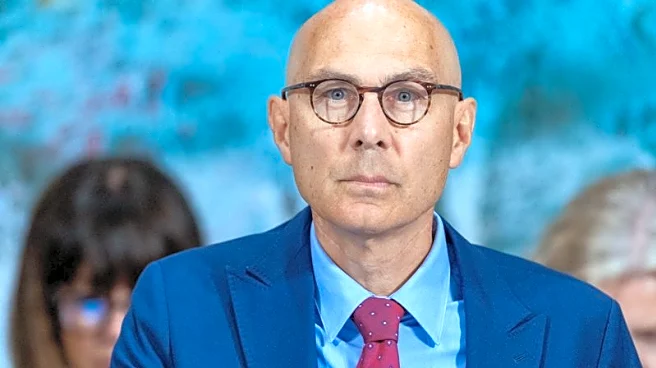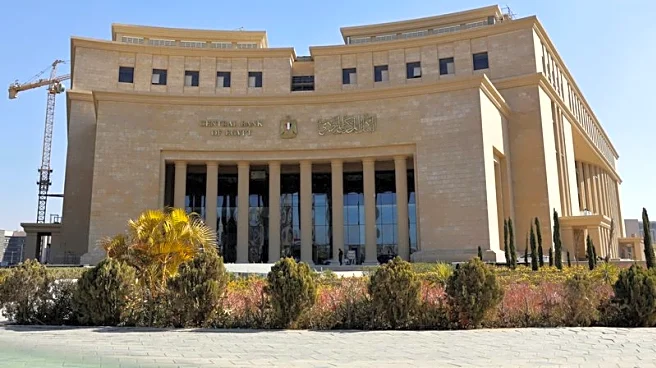What's Happening?
The Congressional Budget Office (CBO) has released a report indicating that President Trump's tax and spending law could result in automatic cuts to Medicare unless Congress intervenes. The law is projected to add $3.4 trillion to the federal deficit over the next decade, potentially triggering a 2010 law that mandates across-the-board cuts to federal programs when the deficit increases. The CBO estimates that Medicare could face cuts amounting to $491 billion from 2027 to 2034. Despite pledges from President Trump and Republicans not to cut Medicare, the financial implications of the law could pressure federal programs that are crucial to the American social safety net.
Why It's Important?
The potential Medicare cuts are significant as they could impact millions of Americans over the age of 65 who rely on this federal health insurance program. The law's addition to the federal deficit raises concerns about the sustainability of essential social programs. Democrats have criticized the tax law, arguing that it prioritizes tax breaks for billionaires at the expense of Medicare, Medicaid, and Obamacare. Rural hospitals, already facing Medicaid cuts, could experience further financial strain if Medicare funding is reduced. The situation underscores the need for bipartisan cooperation to address the fiscal challenges posed by the tax law.
What's Next?
Congress may need to act to prevent the automatic cuts to Medicare by finding ways to offset the deficit increase caused by the tax law. This could involve bipartisan negotiations to amend or repeal parts of the law that contribute to the deficit. Stakeholders, including healthcare providers and advocacy groups, are likely to lobby for measures that protect Medicare funding. The political landscape may also shift as lawmakers respond to public concern over potential cuts to vital social programs.
Beyond the Headlines
The broader implications of the tax law highlight ethical considerations regarding fiscal policy and social welfare. The debate over tax cuts versus social program funding reflects deeper ideological divides in U.S. politics. Long-term shifts in public policy may emerge as lawmakers grapple with balancing economic growth and social safety net preservation.










